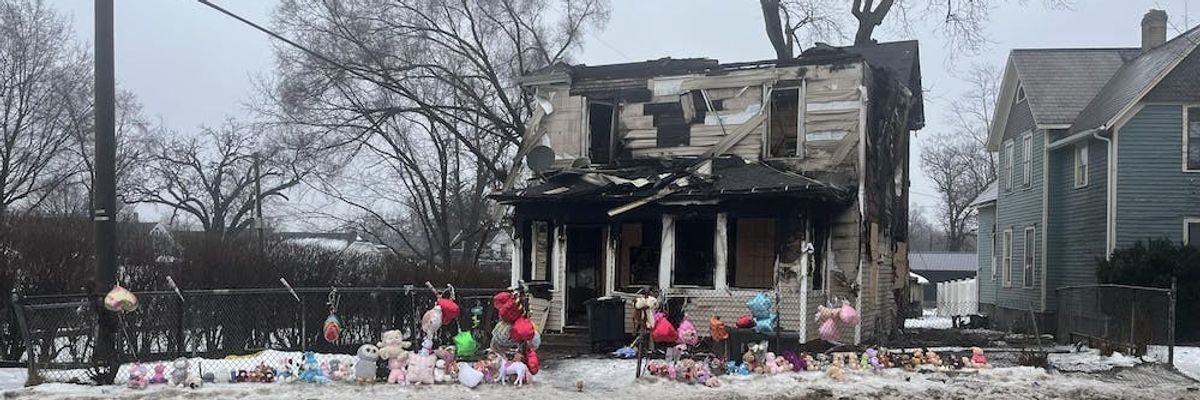Last week, my students and I worked with several unhoused persons who had been recently living in dangerous, unhealthy apartments or homes in our community of Indianapolis. One, a young mother of a toddler with another baby soon on the way, had just left a home where eight people across three generations were living. The house had no central heat, so space heaters were the only source of warmth during a month when the temperature dipped below zero for several days. Those heaters and everything else electrical in the house were linked to a complex web of extension cords connected to a solitary working outlet.
On Thursday, we were in court with another client, a mother of four young children still living in a house where mold is spreading, windows are nailed shut, and electrical wires are exposed. This summer, a decrepit air conditioner unit overheated to the point where it nearly caught fire. The landlord repeatedly ignored the mom’s requests for repairs, claiming she accepted the home “as is”—a disclaimer that may be allowed with used car purchases but is explicitly illegal in rental housing. When the landlord finally did take some action, it was to simply paint over the mold.
Also last week, I read that, in the Indiana city of South Bend, six children ranging in age from 17 months to 11 years old were killed when the home where they were living caught fire. The South Bend Tribune reports that the rental home failed a safety inspection in July after an inspector found ten separate violations, including an "electrical problem throughout the entire home." Demetris Smith, 10 years old; Davida Smith, 9 years old; Deontay Smith, 5 years old; D’Angelo Smith, 4 years old; and Faith Smith, 17 months old, all perished. Angel Smith, 11 years old, survived for a few days before dying last week in Riley Children’s Hospital here in Indianapolis. Angel’s death officially made it the most deadly fire in the city’s history.
Almost every person we speak with in eviction court, along with virtually every unhoused person we connect with, has been or still is living in housing that is seriously unhealthy and often dangerous. Health departments struggle to regulate housing codes. The handful of lawyers available to file claims against landlords are overwhelmed with their current docket, constantly having to turn away tenants who endure horrible conditions.
Indiana tenants have no rights... let's change thatwww.youtube.com
We do our work in Indiana. Our state is certainly not alone in our struggle to ensure decent housing conditions, but we are among those who do the least to protect tenants. The Greater Indianapolis Multifaith Alliance told the stories of some Indiana renters in this short video; our student Jacob Purcell wrote a detailed analysis of the housing conditions crisis in a comprehensive report available on our clinic web page. Ko Lyn Cheang, then of the IndyStar, wrote here about one of the many local investor-owned apartment complexes where tenants are forced to live in egregious conditions.
Thank goodness for all the tenant leaders and organizers, outreach workers, shelter staff, social workers, physical and mental health professionals, lawyers, advocates, and others who work every day to make the situation as tolerable as possible for as many people as possible.
But we can add the toll that indecent housing conditions takes on low-income renters to the suffering caused by housing insecurity overall. A study by the U.S. Census Bureau and the Eviction Lab at Princeton University showed dramatic increases in mortality rates associated with evictions. “Simply being threatened with an eviction—even when that case did not result in an eviction judgment—was associated with a 19% increase in mortality,” the researchers reported. “Receiving an eviction judgment was associated with a 40% increase in the risk of death.”
Add that startling finding on top of what we know happens post-eviction. It has long been clear that there is a hugely disproportionate death toll among unhoused people. Homeless individuals die at an average age of 50 years old.
None of this comes as a surprise here: with our clients, it is easy to see the physical and mental pain caused by their housing crises. Fortunately, none have yet suffered the unimaginable tragedy that was visited on the Smith family in South Bend. But our housing crisis is definitely a life-and-death struggle, and this week a lot of people were losing that fight.
